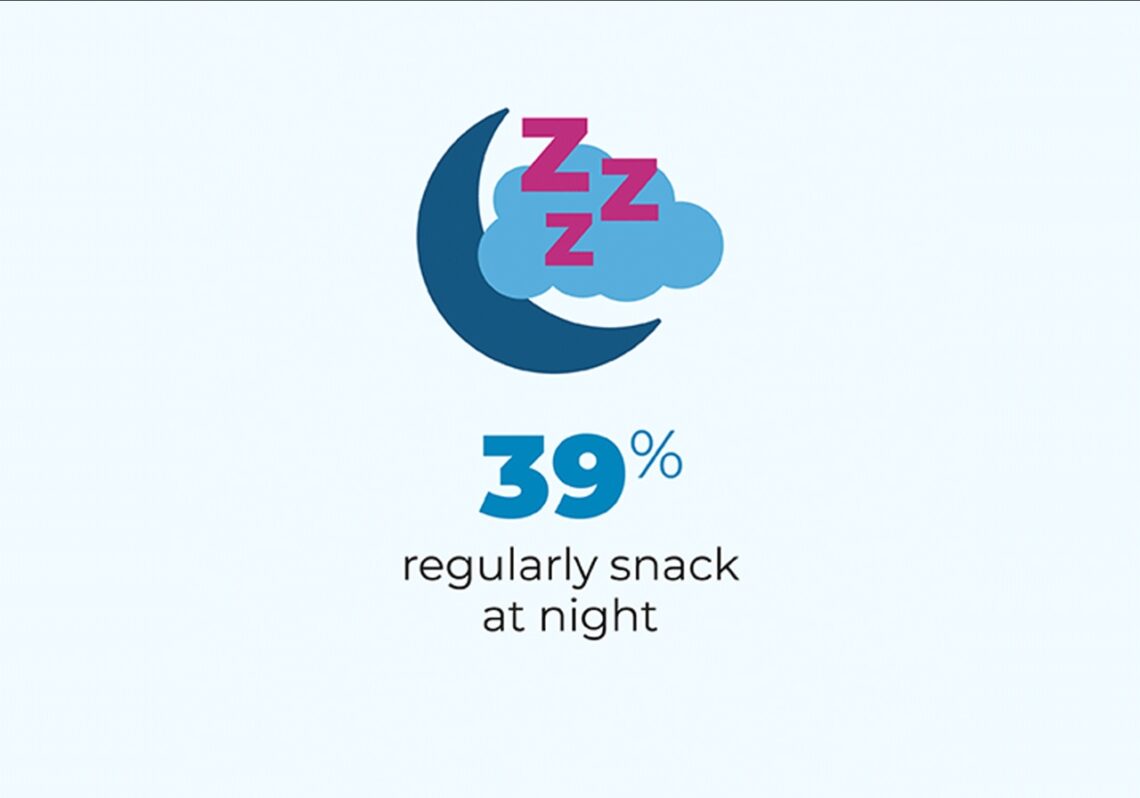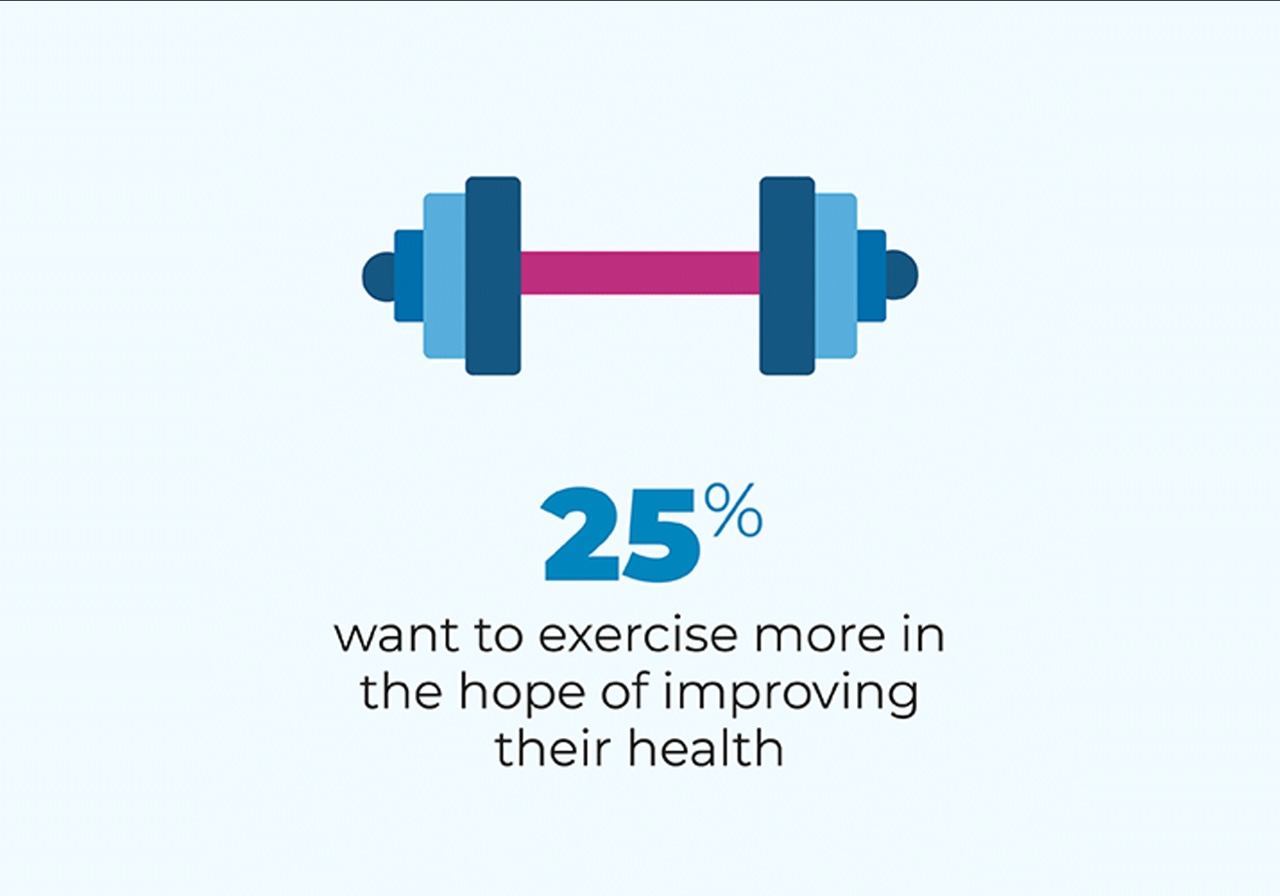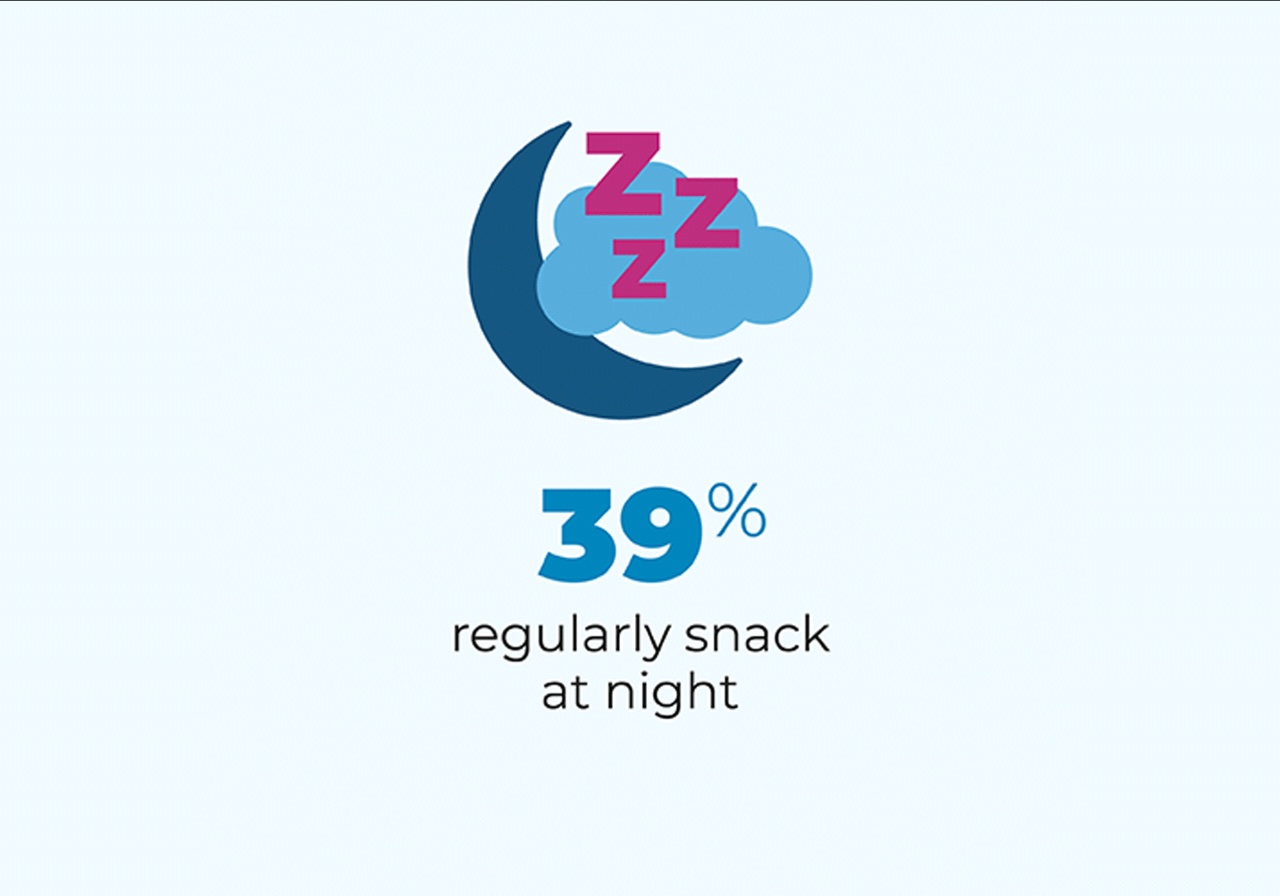
HEALTH HABITS OF A NATION: NEW REPORT IDENTIFIES THAT 7 IN 10 BRITS DON’T BELIEVE THEY HAVE STRONG IMMUNITY LEVELS
AS HEALTH AND WELLNESS MEASURES SLIP OVER SUMMER, BRITS LOOK TO IMPLEMENT GOOD ROUTINES
As Autumn approaches, a new report has revealed that nearly seven in 10 Brits (69%) don’t feel their immune system is up to scratch.
The Actimel Immunity Report, based on the behaviours of 2,000 people, has been released in a bid to encourage the nation to support their immunity by making small, positive changes.
Working with leading Immunologist, Dr Jenna Macciochi, PhD, fortified yogurt drink, Actimel analysed several different lifestyle factors that directly affect immunity – including diet, physical activity, stress levels, alcohol intake – and self-reported wellness to assess their estimated impact on immunity. The results showed levels of strong immunity varying substantially across the UK – with Yorkshire and the Humber coming out on top (39%) and the North East the worst (20%).
Summer sees health habits slip
The research found that since the pandemic, over a third (35%) of Brits have become more conscious of making positive health choices, yet in the summer, over one in five (21%) relax their routines and nearly a fifth (19%) let their health and wellness habits slip.
20% regularly forget to eat breakfast and admit to not taking vitamins, supplements, or fortified products, whilst 19% lapsed in exercising regularly. 28 per cent also have different sleeping patterns during the warmer months.
Despite this, two in five (38%) report that when they are in good routines regarding exercise, diet and sleep, they feel their overall health is improved. However, over a fifth (22%) admit they don’t know the best steps to take to support their immunity.
Striving for better
The change in season gives us impetus to build immunity, as nearly half of Brits (47%) believe that the weather has a negative impact on their health, and over a quarter (28%) fear that there are more germs on the commute. Close to a third of parents (30%) worry they are going to get sick with children returning to school.
As a result, a third (34%) think that making positive lifestyle changes to help safeguard our health and ensure a well-functioning immune system is important. The most popular health-based behaviour changes reported in the study include:
- eating healthier foods (26%), exercising more (25%), and getting more sleep (23%) – all of which particularly appeal to adults within the 35–44 year age group
- eating or drinking products intended to improve immunity (21%)
- taking vitamins (19%)
National immunity indicators
Across the nation, the report showed over three-quarters of Brits (77%) try to follow the NHS recommended healthy balanced diet*, with those living in Brighton and Hove, Cambridge and Liverpool most likely to follow it, and adults in Swansea least likely to do so.
14% of people admitted to only eating fruit or vegetables once a week, with more indulging in a sweet treat multiple times a week (43%), and over a third admit to regularly snacking at night (39%). The study also found that 18% of Brits have at least five to six processed meals every week – with those living in the North East (4.4) and Yorkshire (4.5) consuming way above the average weekly amount (3.9) – and almost a quarter (22%) have never taken vitamin supplements.
Almost a quarter of Brits (21%) have never taken Vitamin D supplements despite 31% stating that supplements and fortified products, such as Actimel yogurt drinks, are important in maintaining a healthy routine and supporting immunity.
When it comes to alcohol, 40% of Londoners who already live amongst high levels of pollution, have a higher-than-average weekly alcohol intake compared to the average adult (9 units),followed by those in the South West (10 units). In comparison, the North West (7.4) and Midlands (8.1) are the regions which drink the least.
Those in the capital are also predicted to have lower levels of immunity than those in the West Midlands, but higher than those in the North West. Compared to the daily average (three hours), London and Scotland spend more time exercising per week whereas those in East Anglia and the Southwest keep active much less
Nearly three in five of us (57%) manage to achieve roughly the right amount of sleep, but the remaining adults report under-sleeping and are therefore find themselves at higher risk for infections and illness. When it comes to regional splits, those in the South West get the most shut-eye and people in the West Midlands manage the least. And of course, it’s no surprise that adults without kids are more likely to get 7 or more hours of sleep than those with children.
Immunologist, Dr Jenna Macciochi, PHD comments, “The Actimel research shows how despite most people being aware that the change in seasons can have a negative impact on health, they are confused as to where to start and find it hard to implement lifestyle-based health changes. There is also an education gap when it comes to the most effective ways we can help support a well-functioning immune system, as there appeared to be a lack of awareness around ensuring enough daily vitamin D and consuming fortified products, which can be a real help as we move into winter. It’s good to remember we can all take small steps to support immunity through exercise, good sleep and diet and small changes can make a big difference.”
Dr. Jenna Macciochi Tips
- Prioritise sleep. Enough sleep, preferably 7 to 9 hours, is vital to supporting your immunity, while sleep deprivation has been shown to suppress the immune function
- My solution– when it’s cold and wintry outside, who doesn’t want to be tucked up warm in bed? Try setting a bedtime and sticking to it, and then get up at the same time each morning too. And yes, I do mean even on weekends. Your sleep quality and quantity will improve, and you’ll be supporting your immune system too.
- Supplement sensibly. While many immune-supportive nutrients can come from eating a balanced diet, some people benefit from supplements, and most of us could do with a regular dose of Vitamin D, especially through the dark winter months.
My solution – Actimel fortified yoghurt drink, of course! It’s small but mighty and available in a selection of fat-free, added-sugar free, dairy-free, flavoursome varieties*
- Eat the rainbow. While I encourage everyone to reach for the sky, in this instance I simply mean eat lots of different coloured fruits and vegetables every day! Fruits and vegetables are good sources of vitamins and minerals and fibre. By eating a variety every day (at least 5 portions) you can help support your overall health and wellbeing.
My solution – truly, this is a game changer. Chop fruit up into bite-sized pieces and place on a plate or in a bowl. It’s so much more snackable. I’ve yet to meet anyone who would turn down a segmented orange, but I’d estimate at least half of them wouldn’t pick up an orange from a fruit bowl.
- Move more. Physical activity really is important, supporting the immune function and helping protect against illness. Ideally, we should all be doing a mix of cardio and strength-building exercises and preferably avoid extended periods of sitting down.My solution – If you’re not a gym fan or prefer to avoid organised sports, try reframing ‘exercise’ as just ‘movement’. Get up and about. Take the stairs. Hop off the bus a stop early. Practise your tree pose while you wait for the kettle to boil. Every movement matters!
- Manage stress.Master your stress to support your immunity. Over an extended period, stress interferes with your immune system’s regular activity, affecting its ability to help support your health.
My solution: To keep on top of your stress, try these tips. In the moment, it can be useful to have a few real-time tools to cope with stress. Deep breathing (for example box breathing or an extended exhale), going for a walk or stepping away from your computer to take in what’s called a ‘panoramic gaze’ can be helpful. Future-proofing stress tools include practising mindfulness, a regular meditation practice, making time for nature and physical activity.







